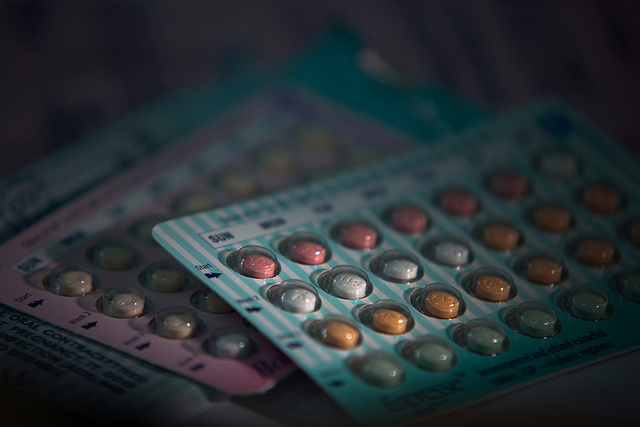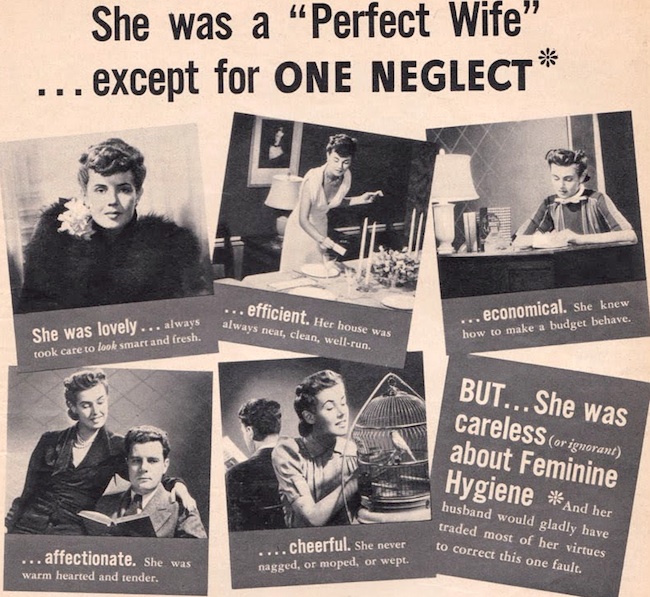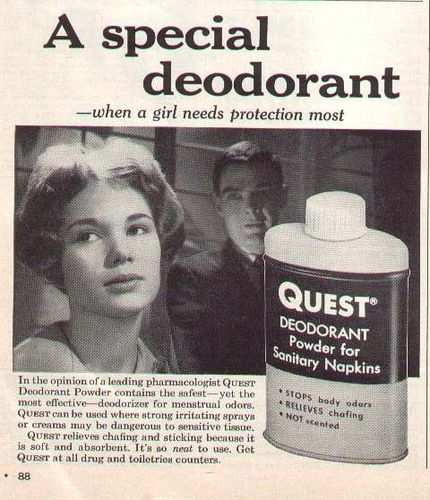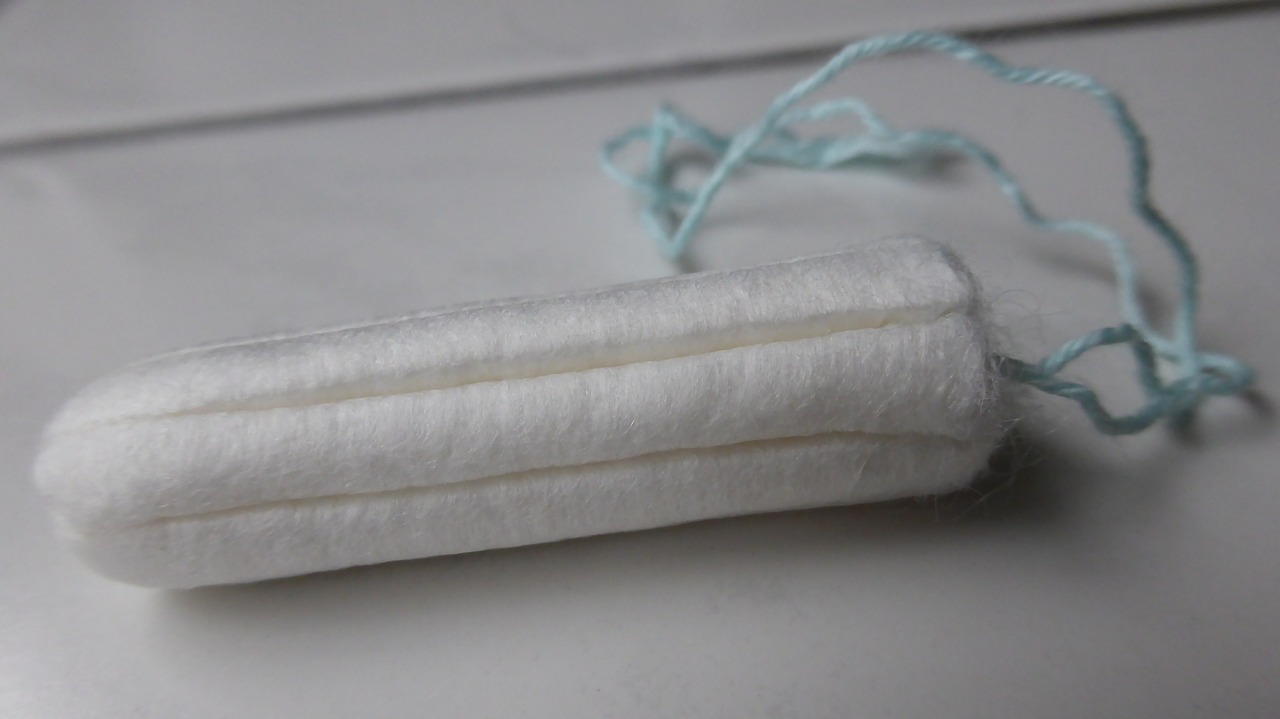These Women’s Health Products Have a (Not So) Surprisingly Dark Past

By:
Given that women's health and reproductive rights remain under pressure in the United States, it should come as no surprise that women's health products and services are plagued by a dark and sexist past.
Women have apparently been lied to, cheated, racially profiled, used as guinea pigs, and objectified in disgusting marketing campaigns for more than a century following the advent of these products. Some of these products—including birth control pills, tampons, and vibrators—are still used by women every day. But the history of their inception is scary, and in the case of birth control, even racist.
 UC Irvine via Flickr - flickr.com
UC Irvine via Flickr - flickr.com
Here are 5 examples of women's health products with troubling histories.
1) Puerto Rican woman were subjected to unsafe birth control experiments.
Some of the earliest trials for birth control in the 1950s were conducted in secret, with women who didn't know what they were taking. In one study, conducted by a Catholic physician and gynecologist John Rock, women dropped out early "because they couldn't tolerate the side effects: bloating, potentially fatal blood clots, and mood changes," writes Bethy Squires in a report for Broadly on the history of birth control.
"The team began to have difficulty getting clinical trials off the ground in America, partially because contraception was still illegal in most states and partially because of the high drop out rate from their smaller studies. So Pincus and Rock looked to Puerto Rico, where concerns about overpopulation fueled in part by the eugenics movement meant there were no birth control restrictions and abortion was legal on the island," the report continues.
This is where it gets pretty racist. Pincus and Rock, two of the four pioneers of oral contraceptives, figured that "if poor, uneducated Puerto Rican women could use the pill, anyone could," Squires reported, so they conducted studies in Puerto Rico. Initially, they didn't inform their subjects about what the pill was for, then later decided it would help increase participation if they did. As they wrapped up the study, the doctors "found that the pill was 100 percent effective in preventing pregnancy. However, 17 percent of participants suffered from side effects such as 'nausea, dizziness, headaches, stomach pain and vomiting,'" Squires reported.
Despite a number of doctors concluding the pill had too many side effects to be deemed safe for American women to use, one pharmaceutical company went ahead with releasing a pill called Enovid, which had more hormones than the version used in Puerto Rico, but all the familiar side effects that made those women feel sick.
2) If you thought that was messed up, wait until you hear about vibrators.
The oft-misunderstood female orgasm has a dark past, too. You know that saying about necessity being the mother of invention? Well, that's basically what happened with vibrators. Only the necessity part is where it gets really sexist.
Until the 20th century rolled around, women's sexual desires were often diagnosed by doctors as simply the product of "hysteria." Doctors and psychologists at the time (all men, mind you) started to hold sessions where they would bring a female to orgasm in order to release some of that hysteria and help calm these women down.
"Unfortunately for doctors, hysteria treatment had a downside—achy, cramped fingers and hands from all that massage," according to a report in Psychology Today. So in 1880, "more than a decade before the invention of the electric iron and vacuum cleaner, an enterprising English physician, Dr. Joseph Mortimer Granville, patented the electromechanical vibrator," the report continues.
In other words, men thought women were weird for having sexual desires, but also got tired of keeping them satisfied, so they invented a machine to help.
3) Douches have a dark history, too.
 Lysol Inc. via Collector's Weekly - collectorsweekly.com
Lysol Inc. via Collector's Weekly - collectorsweekly.com
Douching never worked. At least birth control, vibrators, and tampons have some practical use and have been improved over the years to benefit women's lives. But this was a hoax from the jump, and the sexist adverts that filled newspaper pages in the 50s, 60s, and onward live to tell the sexist tale.
This report by Timeline breaks it down perfectly, and features some hard-to-believe images of adverts that were 100 percent real and definitely convinced scores of women to do this unnecessary and useless thing. Reminder, douching does not work. It doesn't prevent pregnancies, reduce odors, or eliminate any risk for STI's or STD's. All it does is set women back a few decades, and potentially cause permanent damage to their labia and cervixes, as The Atlantic's Julie Morse reported in 2015.
4) Speaking of setting women back, Quest did a good job at that.
 Quest Inc. - pinimg.com
Quest Inc. - pinimg.com
Periods have always made men uncomfortable. So uncomfortable that a "health" product was invented for "when a girl needs protection most." Quest claimed to "positively destroy all types of napkin and body odors," a solution truly in search of a problem.
5) Speaking of sanitary napkins ...
 Pixabay - pixabay.com
Pixabay - pixabay.com
Tampons have been around for ages. According to "The Tampon: A History," published by The Atlantic, there were prototypes as early as 1879 that mirrored what women use today. But aside from the present-day, sexist tax that women have to pay on their feminine hygiene products, tampons have a different kind of sexist past, too.
“For many people, there was a lot of discomfort with the idea of women touching themselves in any way in their vaginal or labia area, especially young girls,” Sharra Vostral, the author of "Under Wraps: A History of Menstrual Hygiene Technology" told The Atlantic. “A lot of people argued that [tampon use] was not only inappropriate because it might break the hymen, but it might be also pleasurable and might be a way for girls to experience orgasmic pleasure."
At least, in present day America, women can just focus on the sexist tax on their "luxury" tampons. That's some improvement, right?
